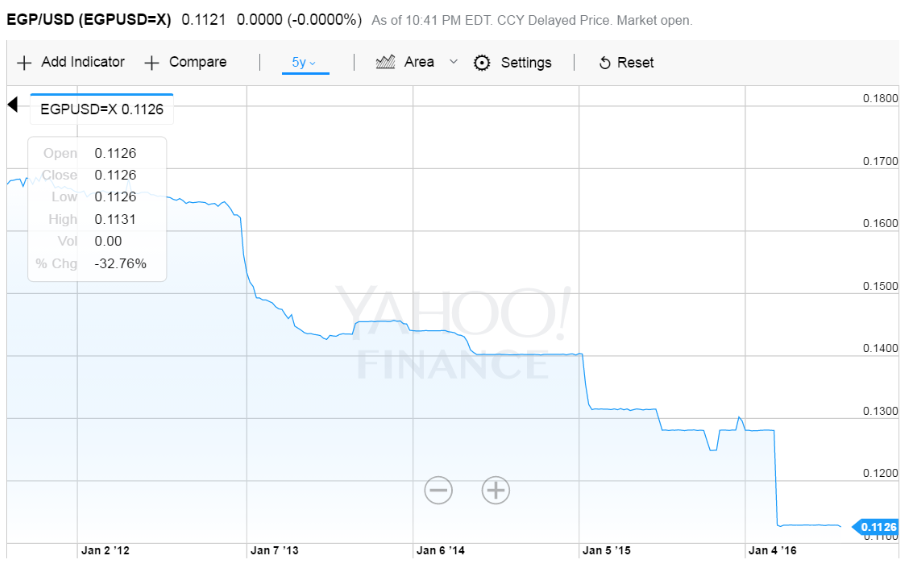For Foreign Policy: Transitions.

Lately I’ve found myself thinking back to those horrible American soap operas (the “Bold and the Beautiful,” etc.) that my late grandmother used to watch. She managed to find interest in what seemed to me like a sickeningly repetitive story (love, betrayal, and borderline incestuous relationships). Each season introduced new protagonists and guest stars who frolicked alongside the core cast. This ensured, for lack of a new storyline, some diversity of faces and names to keep the audience entertained (or at least mildly interested).
These days it’s a rather different kind of serialized drama that’s plaguing my country — namely, the negotiations between Egypt and the International Monetary Fund (IMF). After months of relative quiet punctuated by the occasional hopeful declaration from the government, stoic commentfrom the IMF, doomful analysis from economists, and even a little side-drama in the negotiations, last week witnessed some fundamental changes in Egypt’s side of the cast.
Prime Minister Hesham Kandil reshuffled his cabinet on May 9, appointing nine new ministers, including a new team for the IMF negotiations.
The new minister of finance, Fayad Abdel-Moneim, is an Azhar University academic who spent his entire career, starting with his doctoral thesis, pouring over questions of Islamic finance. But he doesn’t seem to have any real market experience, aside from a bit of consulting for a few university or government bodies.
Yehia Hamed was appointed minister of investment. A spokesperson for President Morsy during his campaign, his qualifications amount to — wait for it — working in marketing and sales for the telecom company Vodafone Egypt. Somehow this was viewed as suitable and sufficient experience to be appointed as the person tasked with developing and facilitating local and foreign investment to the country.
Finally, in an even more egregious political reward appointment, Amr Darrag, a leading figure in the Muslim Brotherhood-allied ruling Freedom and Justice Party, was appointed minister of international cooperation and planning. Darrag holds a doctorate in soil mechanics and foundations. He was recently found responsible for a scandalous incident of double-speak, havingtold a Turkish think-tank, in a document published in English, that his party was “striving to establish a free society, where citizens have equal rights, where women are treated with respect, and have equal access to education, jobs, and politics. A society where Copts, Jews and atheists live side by side in peace with equal citizenship rights.” But in the Arabic version of this article however, the reference to the rights of said women, Copts, Jews, and atheists was conveniently omitted.
The state-owned Ahram Online newspaper mentioned that Darrag will be leading the negotiations from now on — deviation from the habitual leading role of the Ministry of Finance on the IMF negotiations. This change follows the weakening of the Ministry of Finance by the appointment of a minister whose expertise is remarkably remote from the subject. The ministry also recently lost a key negotiator with the recent resignation of Hany Qadry Demian, the senior assistant to the minister of finance and a veteran economist who has been integral to the process since its very beginning.
In short, the powers-that-be have turned Egypt’s IMF negotiating team on its head. This would be bad enough as it is; any coach will tell you that’s it probably not a good idea to change the whole line-up on the eve of a big game. Just to make matters worse, though, the new members of the group appear ill-equipped, but also unprepared, for the task ahead.
Perhaps I’m making too much out of it. Two years into the discussions, Egypt’s strategy in the negotiations has been reduced to attempting to convince the IMF that it really does plan on introducing difficult economic reforms (which it’s doing rather unconvincingly) and to take risky maneuvers such as rejecting emergency finance to put pressure on the IMF. Given the essential weakness of Egypt’s position, there’s only so much we can expect from our negotiators.
The new members of Egypt’s team may have little to offer, but at this point, the perception of professionalism is probably as important as the real thing. Unfortunately, it’s looking thin on both fronts.
In the meantime, the soap opera drags on with its new cast of characters. Let’s see if it ever ends.



